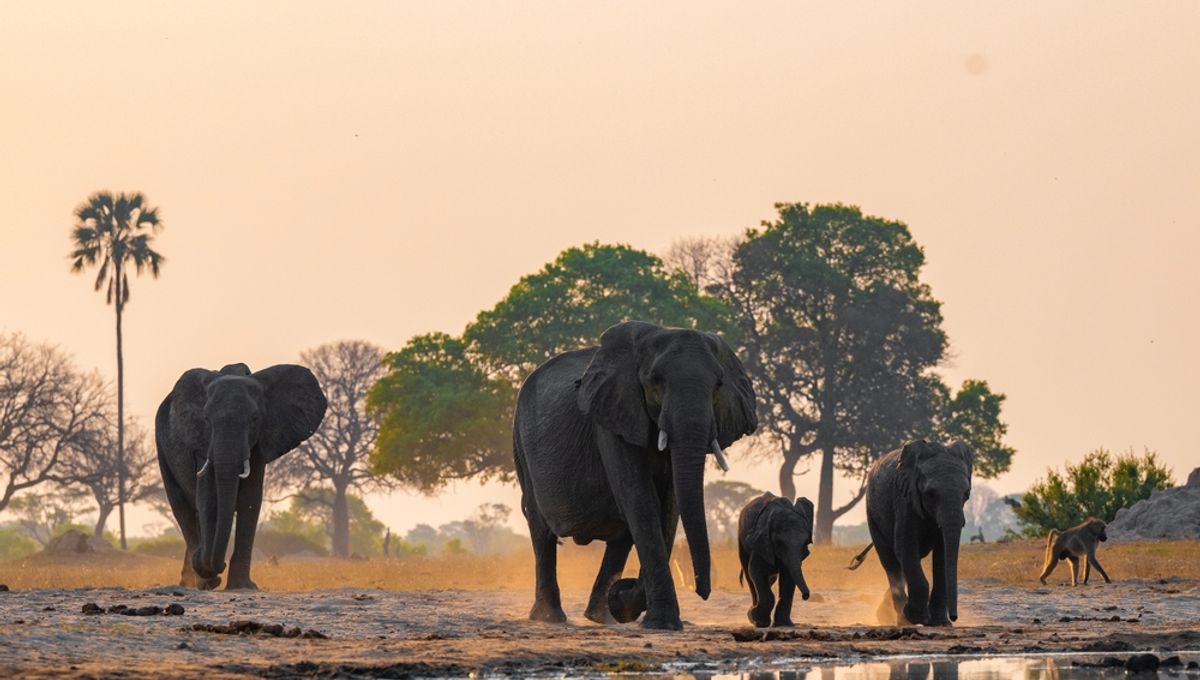
In 2020, during the height of the pandemic, 350 African elephants died suddenly and mysteriously in northeastern Botswana. Many theories have been put forward to explain what exactly caused this mass die-off. Now, research not only confirms the statements put forward by officials closer to the time but highlights the tragic effect of climate change on populations of wild animals.
Using a combination of satellite data and spatial analysis, a team of researchers from Botswana and the UK were able to determine the exact cause of the elephant deaths – toxic algae in the elephants’ watering holes. Thanks to extreme fluctuations in climate attributed to climate change, cyanobacteria, a blue-green algae, proliferated and likely poisoned hundreds of African elephants in the country’s Okavango Delta.
The tragedy was first reported in May and June 2020. The total of elephant deaths now stands at around 350 animals. Experts were quick to rule out poaching as the elephants still had tusks intact, while the age of the elephants and the lack of clinical signs suggested viral and bacterial causes (e.g. encephalomyocarditis virus or anthrax) were unlikely. Toxic algae quickly became a top suspect.
Statements from officials in Botswana linked the algae to the death of the elephants but many were unconvinced as details on the labs that processed the samples were sketchy.
“The theory usefully overcomes any criticisms of failed law enforcement,” conservationist Mark Hiley, Operation Director of National Park Rescue (NPR), previously told IFLScience.
However, the latest findings seem to support the initial reports. The results comparing the location of elephant carcasses with watering holes reveal those closest to the carcasses contained higher levels of algae and were subjected to multiple bloom events in 2020. These algae blooms were likely triggered by changes in the climate – 2020 was incredibly wet whereas 2019 had been the driest in decades.
Using the information they had collected, the researchers were able to work out that the elephants walked, on average, 16.5 kilometers (10.3 miles) from the watering holes and their death occurred approximately 88 hours after being exposed to the toxin.
“Botswana is home to a third of all African elephants, and this unprecedented die-off within their largest remaining population underlines the escalating concerns surrounding the impact of drought and climate change on the Okavango Delta, one of the most important ecosystems in the world,” Davide Lomeo, a PhD student in the Department of Geography at King’s College London and co-supervised by Plymouth Marine Laboratory and the Natural History Museum, said in a statement.
“Southern Africa is projected to become drier and hotter under climate changes, and as a result waterholes across this region will likely be drier for more months of the year. Our findings point to the potential negative effects on water quantity and quality, and the catastrophic repercussions on animals, this could have.”
The study is published in the journal Science of The Total Environment.
Source Link: Climate-Induced Poisoning Likely Behind Those 350 Elephant Deaths In Botswana